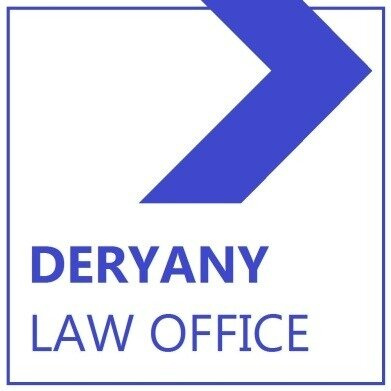Best Business Lawyers in Indiana
Share your needs with us, get contacted by law firms.
Free. Takes 2 min.
Or refine your search by selecting a city:
List of the best lawyers in Indiana, United States
United States Business Legal Questions answered by Lawyers
Browse our 1 legal question about Business in United States and read the lawyer answers, or ask your own questions for free.
- How do I legally protect my idea before selling or licensing it to a company?
- I have a makeup product idea that I want to sell or license, not the product itself. It is influenced by a product that was recently launched. Therefore, I want to sell/license to the company that launched said product. After some research, I contacted a patent attorney who explained that... Read more →
-
Lawyer answer by P.O OHIKHENA & Co
Good day,A patent will not be applicable since it's still an idea. You can go into an MOU(Memorandum of understanding) with the said company and also an NDA.You can contact me for my insight. Visit our profile and send us...
Read full answer
United States Business Legal Articles
Browse our 2 legal articles about Business in United States written by expert lawyers.
- NY 2026 Corp Tax: Thresholds & Franchise
- For tax years beginning on or after January 1, 2026, New York businesses will only be required to make estimated tax payments if their expected New York tax (including any MTA surcharge) is at least $5,000, up from $1,000. Many small and some mid-sized New York corporations and S corporations... Read more →
- Texas AI Compliance 2026 United States Data Privacy Rules
- By 2026, Texas agencies and many businesses that build, host, or support AI tools for government or consumer-facing decisions will face stricter disclosure and anti-discrimination requirements. Texas is pairing its new data privacy framework (Texas Data Privacy and Security Act) with AI-specific rules that target "algorithmic discrimination" in areas like... Read more →
About Business Law in Indiana, United States
Business law in Indiana covers the statutes, regulations, and common law principles that govern how businesses operate in the state. Whether you are starting a new venture, managing a family business, or running a corporation, Indiana business law outlines the legal structure, responsibilities, and rights of businesses of all types and sizes. Key areas include formation of business entities, contracts, employment issues, taxes, and compliance with local and federal regulations. Understanding Indiana's business law environment is essential for ensuring your operations are legitimate, competitive, and properly protected.
Why You May Need a Lawyer
Legal advice is invaluable for business owners, entrepreneurs, and managers in Indiana. You may need a lawyer for a variety of reasons, including:
- Forming a new business entity, such as an LLC, corporation, or partnership
- Dissolving an existing business
- Drafting, reviewing, or negotiating contracts and agreements
- Protecting trademarks, copyrights, or patents
- Complying with federal, state, or local regulations
- Addressing employment and labor issues, such as hiring, firing, workplace policies, or wage disputes
- Responding to lawsuits or threats of legal action
- Buying or selling a business, property, or assets
- Securing investment or funding
- Resolving disputes among partners, shareholders, or with clients and vendors
A qualified business lawyer can help you avoid costly mistakes, navigate complex regulations, and protect your interests at every stage of your business journey.
Local Laws Overview
Business law in Indiana is influenced by state statutes, including the Indiana Code, as well as federal law and local ordinances. Some important aspects to consider include:
- Business Entities: Indiana recognizes several types of business structures, such as sole proprietorships, partnerships, corporations, and limited liability companies (LLCs), each with specific registration and compliance requirements.
- Business Registration: Most businesses must register with the Indiana Secretary of State and obtain relevant licenses and permits based on their industry and location.
- Employment Law: Employers in Indiana must comply with both federal and state labor laws, covering minimum wage, workplace safety, anti-discrimination policies, and more.
- Taxation: Indiana businesses are subject to state taxes, including corporate income tax, sales tax, and unemployment insurance tax. The Indiana Department of Revenue administers these taxes.
- Contract Law: Indiana follows general contract law principles that govern business agreements, sales, leases, and other commercial relationships.
- Consumer Protection: The state enforces laws against deceptive business practices, fraud, and unfair competition to protect consumers and encourage ethical business conduct.
- Zoning and Local Ordinances: Local governments may have zoning and land use rules that affect business operations, especially for retail, manufacturing, and service-based businesses.
Frequently Asked Questions
What type of business entity should I choose in Indiana?
Your choice depends on factors like liability protection, tax treatment, management structure, and funding needs. Common options include sole proprietorship, partnership, limited liability company (LLC), and corporation. Consulting a lawyer or advisor can help you select the best structure.
How do I register a business in Indiana?
Most businesses must register with the Indiana Secretary of State. The specific process depends on the entity type and may require local permits, state tax registration, and federal Employer Identification Number (EIN) registration.
What are the annual requirements for Indiana businesses?
Depending on your business entity, annual requirements may include filing reports with the Secretary of State, paying state taxes, renewing licenses, and maintaining accurate records. Failing to fulfill these may result in penalties or loss of good standing.
Do I need business licenses or permits in Indiana?
Many businesses need state or local licenses and permits. Requirements depend on your business activity and location. Common examples include professional licenses, food service permits, and home occupation permits.
How do Indiana's employment laws affect my business?
Indiana follows federal employment laws but also has state-specific rules. Employers must comply with minimum wage, overtime, anti-discrimination, workplace safety, and unemployment insurance requirements. Proper employee classification and documentation are essential.
What is required for contracts to be enforceable in Indiana?
Contracts in Indiana generally require an offer, acceptance, consideration, and mutual intent to be binding. Certain contracts, such as those involving real estate or lasting more than a year, may need to be in writing.
Can I operate my business from home in Indiana?
Many home-based businesses are permitted, but local zoning ordinances, homeowners' association rules, and permit requirements can apply. Some activities may be restricted or require special approval.
How are disputes between business partners resolved?
Disputes are often resolved according to partnership agreements or bylaws. If no agreement exists, Indiana law provides default rules. Mediation, arbitration, or litigation may be necessary if informal resolution is not possible.
What should I do if my business is sued?
Promptly consult an attorney experienced in Indiana business law. Responding quickly is crucial to avoid default judgments and to protect your business’s interests. Gathering all relevant documents and communications is also important.
Are there any grants or incentives for businesses in Indiana?
Indiana offers various economic development incentives, grants, and tax credits to businesses, especially those in manufacturing, technology, and rural development. The Indiana Economic Development Corporation is a key point of contact for programs and eligibility.
Additional Resources
- Indiana Secretary of State: For business entity registration, records, and filings
- Indiana Department of Revenue: For business taxation, permits, and compliance
- Indiana Economic Development Corporation: For incentives, grants, and support for businesses
- Small Business Administration (SBA) Indiana District Office: For federal assistance, loans, and guidance
- Indiana Chamber of Commerce: For education, advocacy, and networking opportunities
- Local city or county offices: For zoning, permits, and local business regulations
- Indiana Professional Licensing Agency: For licensing of certain professions and trades
Next Steps
If you need legal assistance regarding your business in Indiana, consider the following steps:
- Identify your specific issue or area of concern, such as contracts, entity formation, taxes, or disputes
- Contact a qualified business attorney familiar with Indiana law. Gather all relevant paperwork and information before your consultation
- Utilize resources like the Indiana Secretary of State and local government offices for forms and preliminary guidance
- Consider joining local business organizations or chambers of commerce for networking and access to attorney referrals
- For certain needs, such as licenses, check with the Indiana Professional Licensing Agency or your local city or county office
Navigating the legal aspects of business in Indiana is essential for your success and peace of mind. Professional legal advice can help you comply with the law, minimize risk, and achieve your business goals.
Lawzana helps you find the best lawyers and law firms in Indiana through a curated and pre-screened list of qualified legal professionals. Our platform offers rankings and detailed profiles of attorneys and law firms, allowing you to compare based on practice areas, including Business, experience, and client feedback.
Each profile includes a description of the firm's areas of practice, client reviews, team members and partners, year of establishment, spoken languages, office locations, contact information, social media presence, and any published articles or resources. Most firms on our platform speak English and are experienced in both local and international legal matters.
Get a quote from top-rated law firms in Indiana, United States — quickly, securely, and without unnecessary hassle.
Disclaimer:
The information provided on this page is for general informational purposes only and does not constitute legal advice. While we strive to ensure the accuracy and relevance of the content, legal information may change over time, and interpretations of the law can vary. You should always consult with a qualified legal professional for advice specific to your situation.
We disclaim all liability for actions taken or not taken based on the content of this page. If you believe any information is incorrect or outdated, please contact us, and we will review and update it where appropriate.
Browse business law firms by service in Indiana, United States
Indiana, United States Attorneys in related practice areas.
Browse business law firms by city in Indiana
Refine your search by selecting a city.













